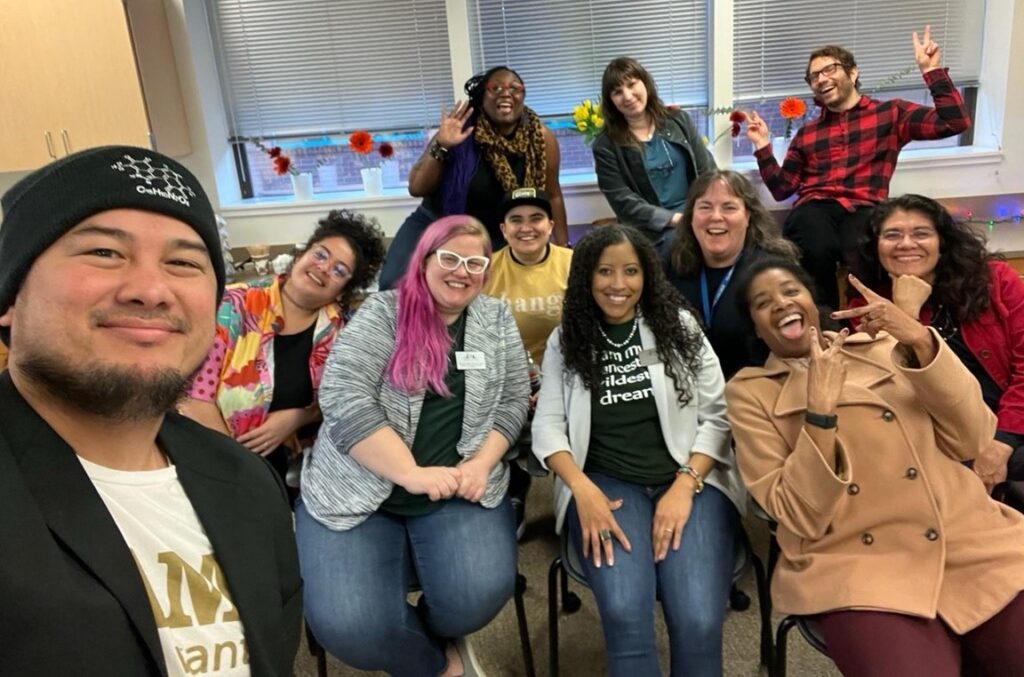2025 NWREC Breaks Records and Builds Connections
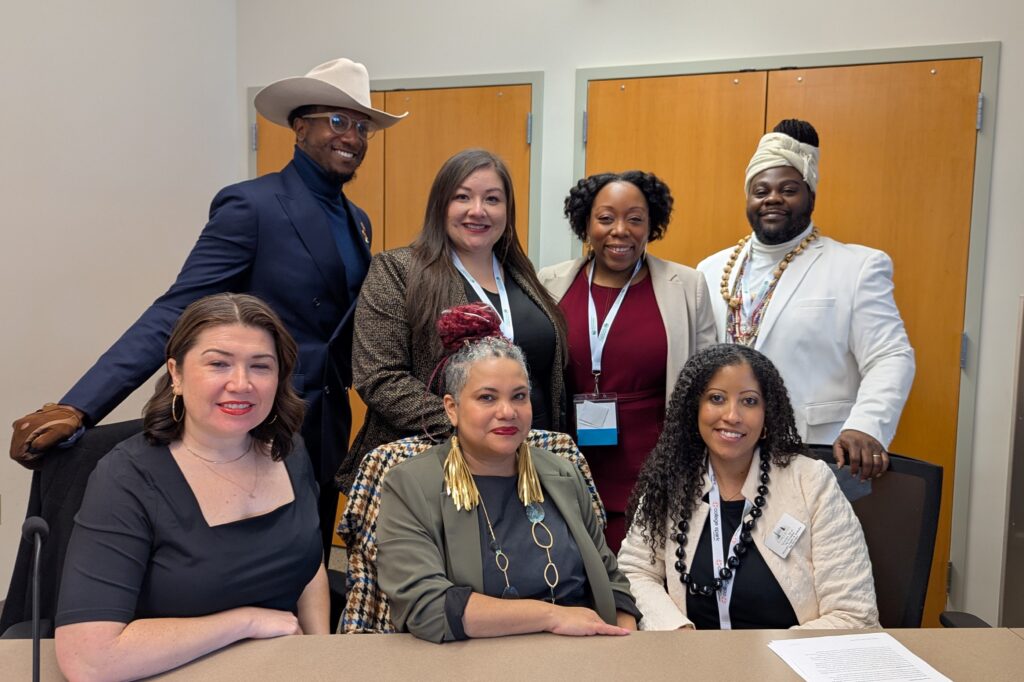
The sixth annual Northwest Regional Equity Conference (NWREC), hosted by Clark College’s Office of Diversity, Equity, and Inclusion from February 12-14, exceeded expectations—cultivating compelling conversations, powerful learning, meaningful connections, and the deep, intentional dialogue that occurred throughout the event.
For the first time, the conference featured a full day of in-person sessions in addition to virtual sessions, responding to past attendee feedback and creating new opportunities for engagement. Over three days, more than 400 participants took part in thought-provoking presentations and workshops designed to advance equity and inclusion in our communities.
Next year’s NW Regional Equity Conference is scheduled for February 11-13, 2026.
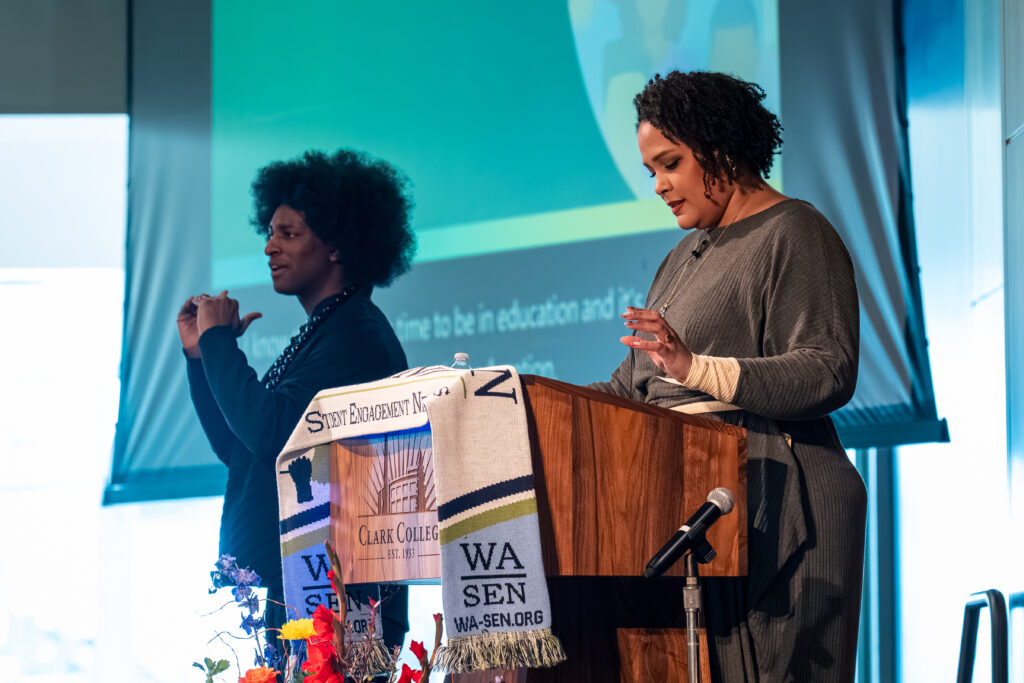
Ijeoma Oluo’s keynote: Make connections to do this hard work
On the opening day of the conference, attendees gathered in the Gaiser Student Center to listen to keynote speaker Ijeoma Oluo, who presented “Be a Revolution.” It is the title of her most recent book. Its subtitle is “How Everyday People are Fighting Oppression and Changing the World—and How You Can Too.” For more than an hour, the rapt audience listened as Oluo provided encouragement and practical advice woven together with her stories.
Some excerpts:
Oluo began: “I know it’s a tough time to be doing equity work in education. We have to keep fighting because not only are our educators showing up, but so are our students.”
She encouraged educators to create spaces of safety for students and teach students how to be in community with each other.
Recalling an earlier conversation with poet Saul Williams, he told her, “Not everyone wants to be alive during a revolution. Some people don’t want to fight.”
Oluo said, “It’s important to know our history. We have in our blood and bones the making of revolution. We fight systems, but we have to find our successes in the people we’re fighting for. Make connections with people who are doing equity work.”
She added, “Remember what you’re fighting for. It’s so easy to be consumed by what we’re fighting against.”
Stating that systemic racism robs us of time, she said, “Now that racism is really at the doorstep of everyone, it’s suddenly an emergency. It’s important that we take this deeper. We have to start building accountability. It’s important to recognize how exhausting this work can be.”
Oluo referenced the 381-day Montgomery, Alabama bus boycott (December 1955-December 1956) that began with Rosa Parks refusing to give up her seat to a white passenger. She asked the audience to imagine how exhausting it must have been for those who showed up for more than a year to protest racial segregation—and stopped riding the bus and instead walked everywhere. What would have happened in the civil rights movement if the protesters had given up because the work was too hard?
“How do we keep going?” she asked and then offered this practical advice: “I realized that I had to start treating my mental health as part of my job. When I start planning for my own care, I do better work. We’re going to have to treat our care as part of the work.”
Oluo said, “The work was always going to be hard. The systems were built this way. At times like this, hopelessness is a privilege. But my father survived genocide. What does hopelessness mean when I am the walking, living dream of my ancestors? I want more for us than just struggle. We must have struggle, but we also must have joy, care, connection, love.”
She encouraged people to seek community: “Invite people to join you in this work. We survive by working together. We share resources. We protect each other. We’re going to need each other in these times ahead.”
Learn more about Oluo here.
Keynote Addresses from Virtual Sessions
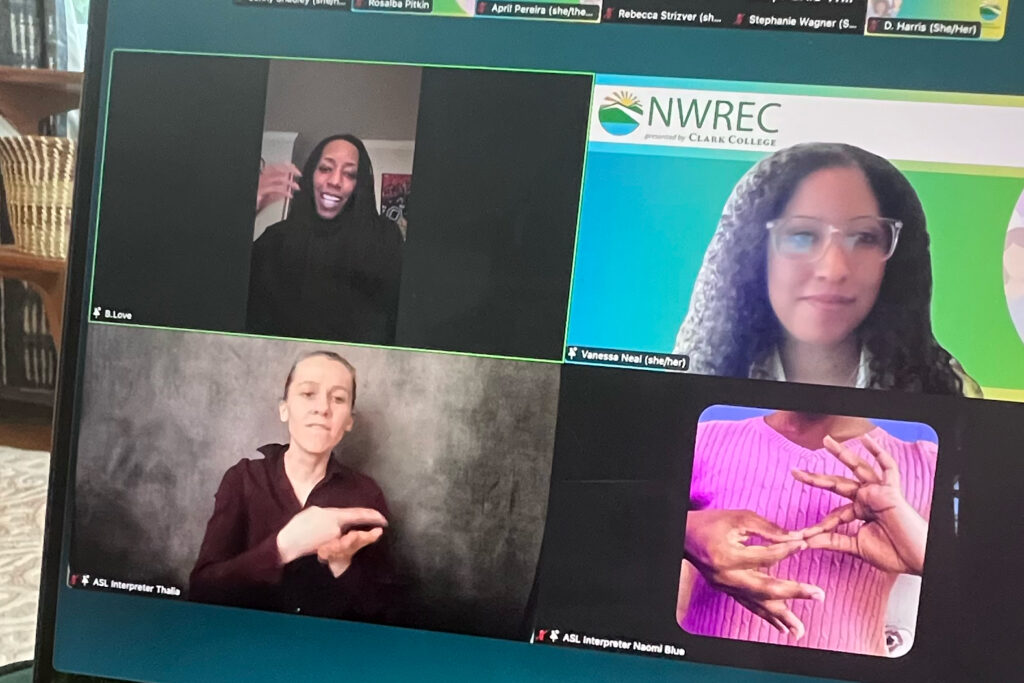
Thursday virtual fireside chat: Dr. Bettina Love, author and William F. Russell Professor at Teachers College, Columbia University. Vanessa Neal facilitated an engaging dialogue with Dr. Love about various aspects of her New York Times best-selling book, Punished for Dreaming. Learn more about Dr. Love here.
Friday virtual keynote: “JT” Jasmin Marie Mageno Torres presented “Beats of Liberation: Hip Hop, Education, and Decolonizing My Story.” JT advocates for equity for students at West Valley College in Saratoga, California.
Colleges/educational institutions that presented workshops included:
- Ball State University
- Bellevue College
- Cascadia College
- Clark College
- Clover Park Technical College
- Columbia Basin College
- Columbia University
- Edmonds College
- Highline College
- Lane Community College
- Lewis & Clark College
- Lower Columbia College
- Mayo Clinic College of Medicine and Science
- Oregon Health & Science University
- Pierce College
- Portland Community College
- Portland Public Schools
- Renton Technical College
- Seattle Colleges
- Shoreline Community College
- South Seattle College
- Tacoma Community College
- University of Washington
- Washington State Board for Community and Technical Colleges (SBCTC)
- Washington State Diversity and Equity Officers Commission
- Washington State University
- West Valley College
- Western Washington University
Workshop presenters represented included:
- BJS Consulting
- Clark County Public Health
- Crown & Heart Healing
- Co3 Consulting, LLC
- DAWN
- Education Policy Improvement Center
- Kaiser Permanente
- Love and Justice Consulting, LLC
- Me Out Loud, LLC
- Multnomah County
- Museum of Nature
- NAACP
- Parfait Bassalé Consulting
- PeaceHealth Hospice
- Share the Flame
- Story Spark Collective
- Washington Student Achievement Council
- Whatcom County
- Whatcom WAVES
- Wild Iris Consulting, LLC
- With the End in Mind, LLC
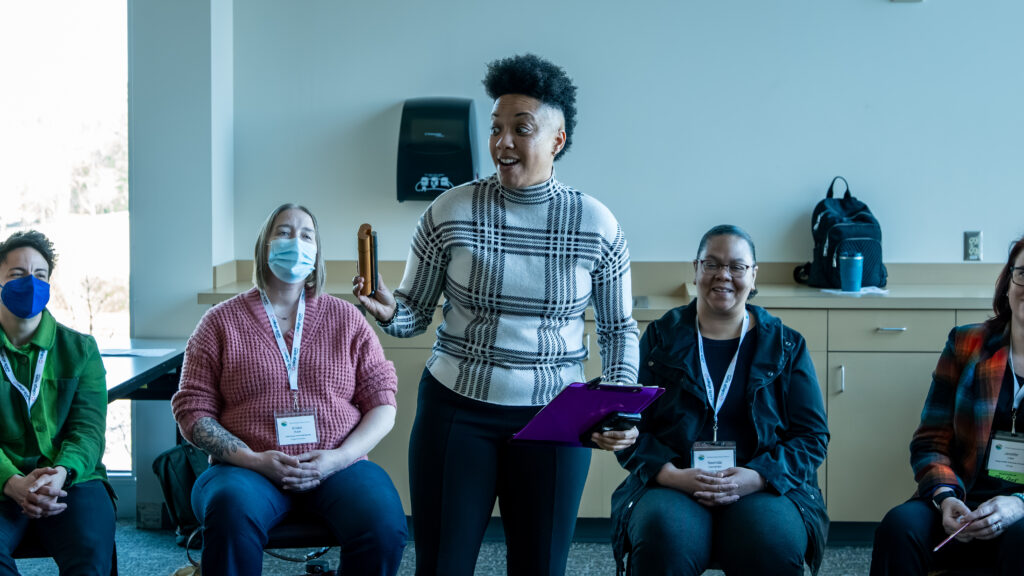
Thanks to these conference sponsors:
- Community Foundation for Southwest Washington
- Clark College
- CareOregon
- College Spark Washington
- Oregon Department of Transportation
- PeaceHealth
Learn more
- Access the complete Conference Agenda
- NWREC on the web: NW Regional Equity Conference (clark.edu)
- 2026 NWREC is scheduled for February 11-13, 2026
